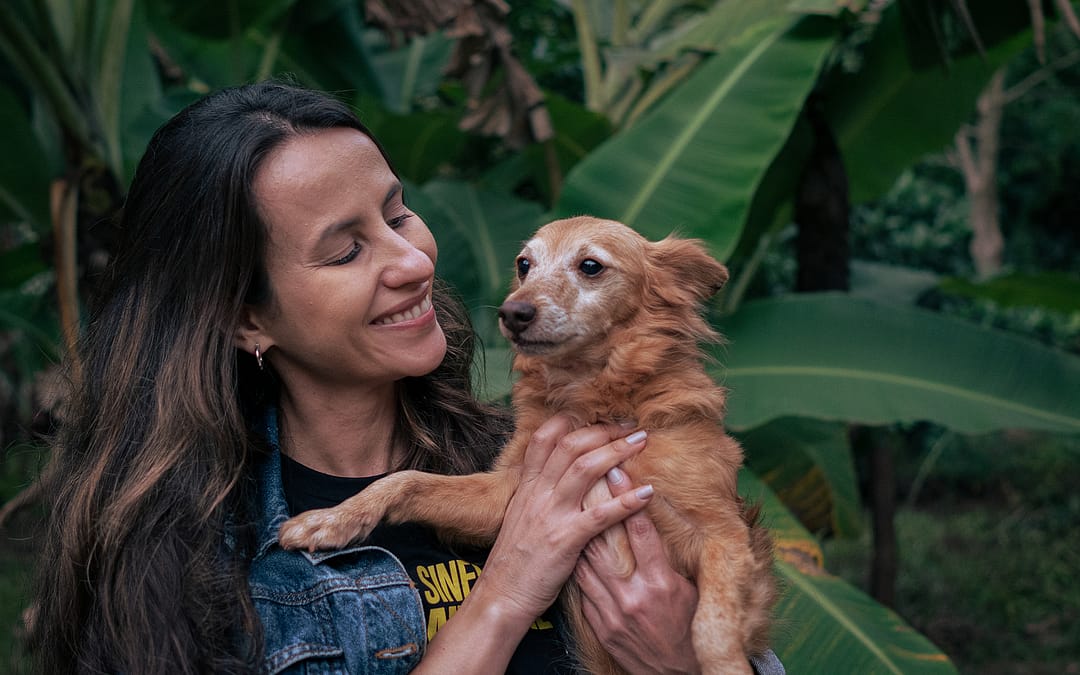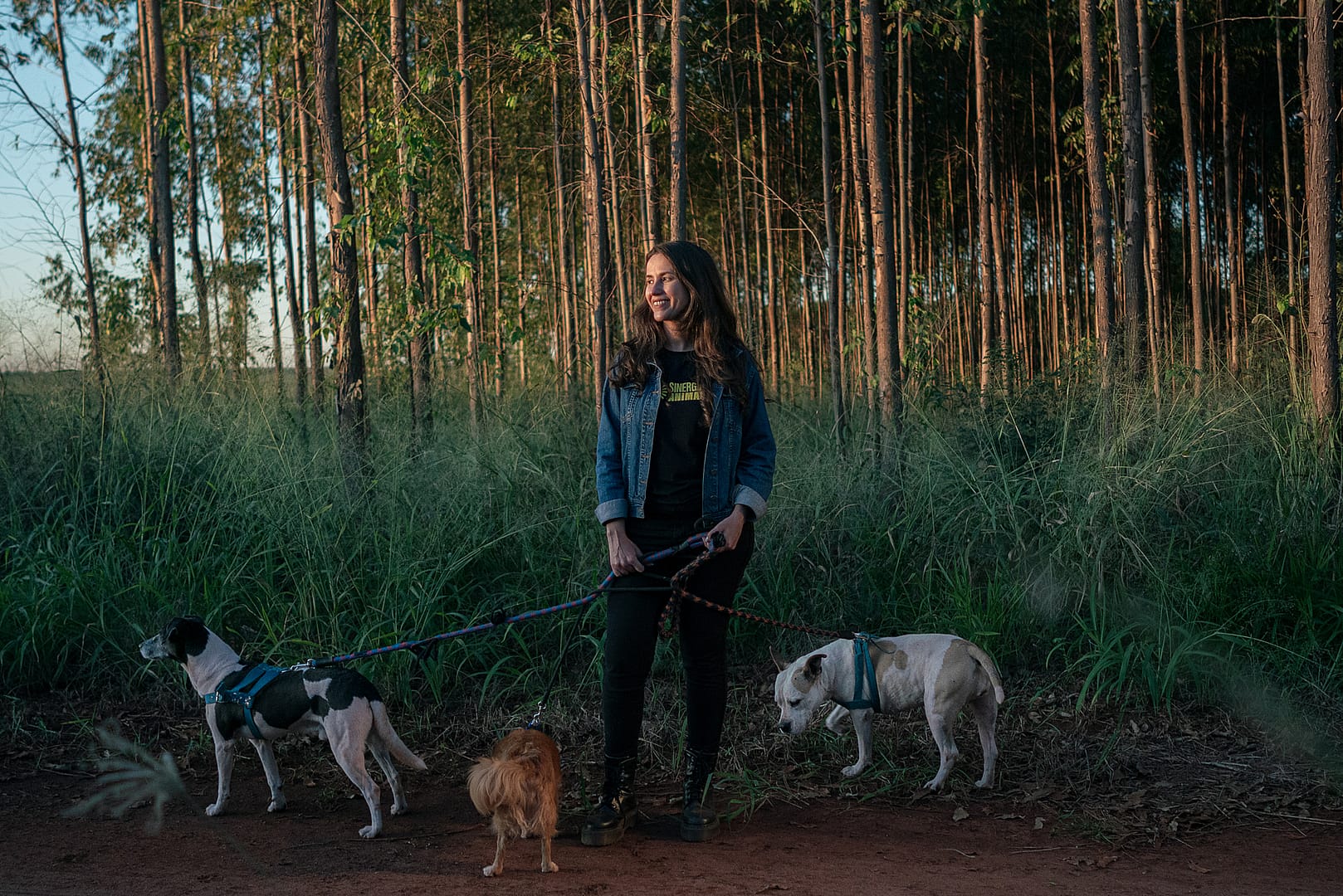
Carolina Galvani
“…I realized I’m here for a reason, and I’m seeing these horrible things, but something will come out of it. I’m pretty sure that this will create positive change.” ~ Carolina Galvani

During her twelve years as an investigative journalist, Carolina Galvani has found herself in some disturbing situations. One challenging assignment took her into a dozen abattoirs across Belgium, where she covertly filmed cows, sheep, and goats being slaughtered while fully conscious—and often right in front of each other.
“I remember one cow really looking at me while she was waiting to be killed, and it hurt me so much before I was forced to watch her dying very slowly,” Galvani, 42, told the Unbound Project. “But this experience also brought an insight to light. I realized I’m here for a reason, and I’m seeing these horrible things, but something will come out of it. I’m pretty sure that this will create positive change.”

The footage and other evidence Galvani gathered did make a substantial impact. When the media published her reports, Belgium politicians sparked a national debate about whether animals should be slaughtered without stunning, which, as it was believed at the time, could reduce suffering and pain if done correctly. Then in 2017, the Flanders and Wallonia regions of Belgium outlawed the slaughter without stunning—a ban that continues to be upheld today.
For Galvani, being a journalist was a lifelong dream. After first studying economics in college to help her better understand the world, in 2005, Galvani received her master’s in international journalism from City University in London. Shortly after she graduated, Galvani learned about an investigative journalism agency in London seeking a Portuguese interpreter to help with an assignment. Galvani volunteered. The project, it turned out, was to go undercover in factory farms and slaughterhouses in Portugal.



“I was already vegetarian for health reasons, but it was really a shock for me because I didn’t know much about factory farming and industrial slaughter,” she said.
The experience changed her life and clarified the kind of work she wanted to do. Galvani realized that she didn’t want to work for a mainstream media outlet, but to continue using her journalism skills to help foster change in animal welfare, human rights and environmental issues.



In addition to exposing the livestock industry, Galvani has helped to investigate the controversial sale of seal fur in Greece, deforestation in Australia for the Chinese timber market, hunting endangered pink dolphins in South America, and the commercial sale of whale meat in Greenland.
“I would feel a lot of anger when I see these horrible things, but anger usually gives you a lot of energy, and you can do a lot of things when you feel anger if you know how to manage it,” she said.
The investigations Galvani helped conduct have been published by leading media outlets such as the New York Times, the BBC, The Guardian, Channel 4 and Le Monde. Yet Galvani says that she doesn’t measure her success by the amount of media attention her work receives —she measures it by the policy change it can galvanize. Besides the changes enforced in Belgian slaughterhouses, Galvani says that her reporting helped prevent the raising of a whaling quota in Greenland and contributed to a ban on the sale of piracatinga, an omnivorous species of catfish in Brazil, which is often caught with illegally procured meat from endangered pink dolphins.
Then in 2017, Galvani took her love for animals a step further by founding Sinergia Animal, an NGO dedicated to reducing animal suffering in countries in the Global South, such as Argentina, Colombia, Thailand, and Indonesia. One of the organization’s main programs is convincing large corporations to phase out caged egg farming and other cruel agricultural practices. She said that about sixty businesses have already made cage-free commitments in these regions, including McDonald’s, Subway, Burger King, and Unilever. Sinergia also conducts investigations, works to defund the livestock sector, and runs vegan challenges.


The success of Sinergia’s campaigns led the NGO Animal Charity Evaluators to nominate Singeria as a standout charity for four years in a row. The NGO also estimated that Sinergia was positively impacting 1.7 million animals each year through its work.
“You can potentially affect millions of animals, so I always felt very rewarded to do this type of work,” she said. “Because for me, like I said before, what matters is to create effective change.”
Galvani works tirelessly for animals, but she also understands the importance of taking care of her mental and physical health. She enjoys hiking, meditating, spending time with her four rescue dogs, and visiting her three rescued pigs who live on her family’s farm.





“I have seen so much destruction,” she said, “so I try to have beautiful things in my life. I think beauty is very important.”
Written by Elizabeth Claire Alberts
Photographs by Francesco Pistilli





















































